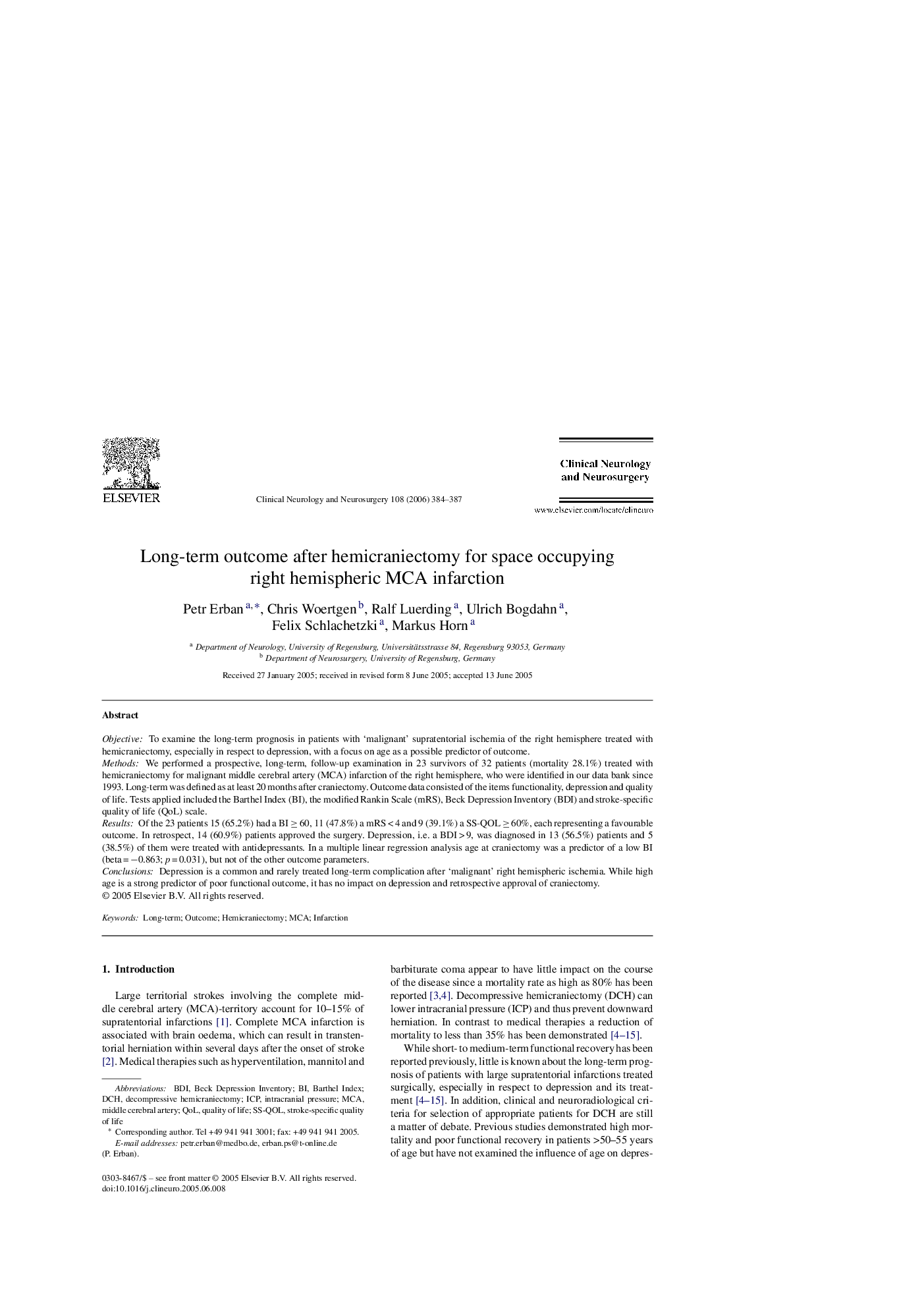| Article ID | Journal | Published Year | Pages | File Type |
|---|---|---|---|---|
| 3042300 | Clinical Neurology and Neurosurgery | 2006 | 4 Pages |
ObjectiveTo examine the long-term prognosis in patients with ‘malignant’ supratentorial ischemia of the right hemisphere treated with hemicraniectomy, especially in respect to depression, with a focus on age as a possible predictor of outcome.MethodsWe performed a prospective, long-term, follow-up examination in 23 survivors of 32 patients (mortality 28.1%) treated with hemicraniectomy for malignant middle cerebral artery (MCA) infarction of the right hemisphere, who were identified in our data bank since 1993. Long-term was defined as at least 20 months after craniectomy. Outcome data consisted of the items functionality, depression and quality of life. Tests applied included the Barthel Index (BI), the modified Rankin Scale (mRS), Beck Depression Inventory (BDI) and stroke-specific quality of life (QoL) scale.ResultsOf the 23 patients 15 (65.2%) had a BI ≥ 60, 11 (47.8%) a mRS < 4 and 9 (39.1%) a SS-QOL ≥ 60%, each representing a favourable outcome. In retrospect, 14 (60.9%) patients approved the surgery. Depression, i.e. a BDI > 9, was diagnosed in 13 (56.5%) patients and 5 (38.5%) of them were treated with antidepressants. In a multiple linear regression analysis age at craniectomy was a predictor of a low BI (beta = −0.863; p = 0.031), but not of the other outcome parameters.ConclusionsDepression is a common and rarely treated long-term complication after ‘malignant’ right hemispheric ischemia. While high age is a strong predictor of poor functional outcome, it has no impact on depression and retrospective approval of craniectomy.
